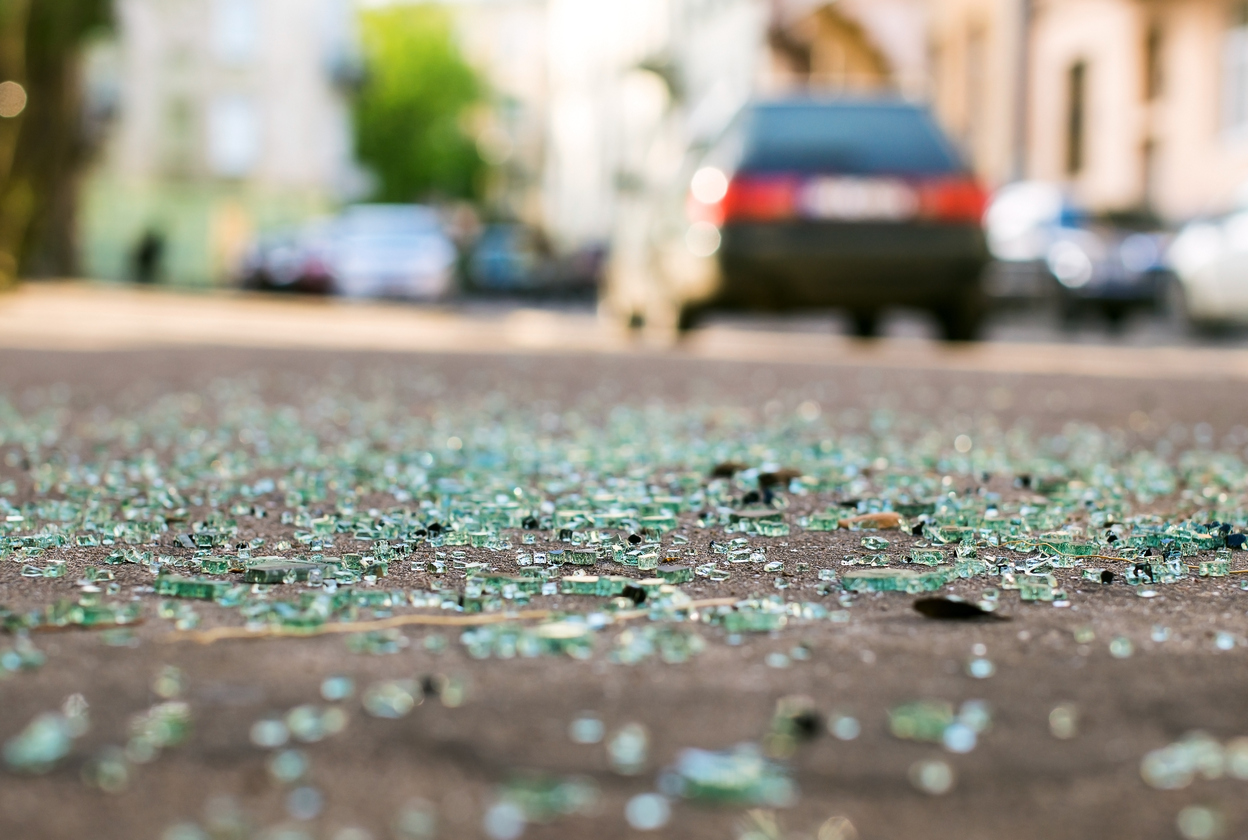
We hope that you never get into a car accident. But the numbers don’t lie. Every eight minutes, there is a collision somewhere in Utah. Someone gets hurt in a car crash every 20 minutes. And sadly, a fatality occurs in a Utah collision every 33 hours. Data supplied by the Utah Highway Safety Office (UHSO) for 2018 showed 62,074 accidents in our state that killed 260 people and caused another 25,645 injuries.
A car accident can also inflict deep financial losses on the injured victim(s). Fortunately, it is possible to hold the at-fault driver liable for your injuries, damages, and other losses in many collisions.
Below is some information about a few Utah laws and how they affect a personal injury claim in our state.
Utah Car Accident Compensation Laws
Under Utah law of modified comparative negligence — a hybrid of pure comparative and contributory negligence doctrines — those whose contribution to car accidents is 49% or less may recover up to 49% of damages awarded by the court.
Utah Is a No-Fault Insurance State
Many states, including Utah, follow a regime of no-fault insurance. Utah laws state that when the drivers involved in an auto accident (and their passengers) suffer injuries and incur medical bills, as a result, they must seek compensation from their insurance provider through their coverage for personal injury protection (PIP).
Their injury claim can cover their medical expenses, lost income, and out-of-pocket costs. However, personal injury protection policies do not cover pain and suffering (non-quantifiable damage).
Personal injury protection coverage differs from liability insurance, as PIP covers drivers and passengers. In contrast, liability insurance covers injuries the other driver and their passengers suffered in the wreck.
PIP also covers some funeral expenses arising from a fatal crash.
Does that mean no recovery is possible from the at-fault driver? Not always. If you suffer severe and/or permanent damage in the collision, an experienced personal injury attorney could be able to seek financial recovery from the other party’s insurance company.
Comparative Negligence in Utah Car Accident Cases
This modified comparative negligence rule disallows those who share 50% or more of the fault to recover any financial compensation for their losses.
How is modified comparative fault determined? It can be challenging in some circumstances and may be left up to the trier of fact, i.e., the Utah judges or juries, determining the outcome in a car accident lawsuit.
Types of Damages Allowed in Utah
Those injured in a car wreck can file a car accident claim for their damages. Under Utah law, that term describes the compensatory damages for which you may seek fair compensation, including:
- Property damage;
- Lost earning capacity;
- Medical expenses;
- Permanent disability; and
- Pain and suffering.
Your personal injury attorney is a good source of information on filing a claim after an accident leaves you with injuries and economic damages.
Limits on Damages in Utah
While Utah state law places a damage cap on the financial recovery from medical malpractice cases, there is no such cap for the damages arising from a car accident case.
Evaluating Damages and Losses
If you are debating whether or not to file an insurance claim after a car accident, you must first evaluate the amount of damages and losses you sustained in the wreck.
Medical Expenses and Healthcare Bills
In order to seek damages from the other driver involved in an auto accident, there are threshold requirements that must be met. Utah civil law states that the medical bills must exceed $3,000, or the injured party must have severe injuries that include the following:
- Fractures;
- Permanent disability;
- Dismemberment;
- Disfigurement; and
- Wrongful death.
A Utah car accident lawyer can offer legal guidance if you need to check if your injuries fall into the above category.
Property Damage and Vehicle Repairs
Was your car totaled or badly damaged? Vehicle repairs are costly, and if it’s totaled, you might not be able to afford another one without the proceeds from a claim for damages.
Lost Wages and Income
Under our state laws, you are entitled to seek damages, including any lost wages or income from when you could not work due to your injuries. These funds can sustain you and your family until you return to work.
Immediate Actions To Take After a Car Accident
In the aftermath of a car accident, below are the first things the person injured in the wreck should do:
- Ensure your personal safety – Assess whether it is safer to remain in the car. You may need to exit your vehicle if gas leaks or if you are in a high-traffic location.
- Seek medical treatment for bodily injuries – Remember that not all injuries are immediately evident but still can be pretty serious.
- Contact the authorities – The law requires involved parties to report the accident. Call 911, and an officer will be dispatched to the scene. You will need to get a copy of the police report to make an insurance claim.
- Document the accident scene – Use your cellphone to photograph the positions of the vehicles, any skid marks, and the damage.
- Gather evidence – In addition to the photographs, ensure you get the insurance information of any drivers involved, along with the names and contact information of witnesses to the wreck.
All these things can help get claimants the maximum compensation possible when they file a claim.
Notifying Insurance Companies
The following explains what injured drivers must do following a car accident.
Reporting the Accident to Your Insurance Company
Your car insurance carrier can deny coverage for injuries from unreported car accidents.
Dealing With the Other Driver’s Insurance Company
Your claim will be assigned to an insurance adjuster who can assess and evaluate the drivers’ faults and determine the percentage of fault attributed to each in the accident.
Their job is to pay as little as possible for each accident claim, so it is prudent to retain a car accident attorney to represent you if there is an extended period after the accident and you still need to be compensated for your losses.
Understanding Insurance Coverage and Policy Limits
When was the last time you perused your auto insurance policy? If you are like most Utah residents, it was likely on the day you purchased the policy (if even then). But it is essential to give it a thorough read after an accident so you understand what is and isn’t covered and what the limits of your policy are.
Utah Car Accident Claims Have Statute of Limitations
Like in other states, there is a statute of limitations for filing a damage claim for personal injuries from a car wreck. Regardless of fault, the statute of limitations in most cases is four years. But claimants only have three years to file to recover compensation for property damage.
In certain scenarios, the statute of limitations is even shorter. If the defendant is in Utah, the time limit is two years in cases of bodily injury and wrongful death. That time frame drops to a year if the defendants include a town, county, or city government.
Why You Need a Utah Car Accident Attorney for Your Case
Can you handle your accident claim? Possibly, but there’s also a chance that you could also leave a substantial sum of money on the negotiation table.
Retaining a car accident attorney increases your chances of receiving a more lucrative settlement or court judgment. Consider all the benefits of having your counsel represent you.
Free Initial Consultation and Case Evaluation
It is difficult for someone not well-versed in the law to know the actual value of their case.
Investigation and Gathering Evidence
After suffering injuries in a collision, you could be too debilitated to properly investigate the circumstances of the wreck or even obtain a police report.
Negotiating With Insurance Companies
Most insurance companies will only pay a claim’s full value if the claimant has an attorney aggressively negotiating for them.
Representation in Court, if Necessary
While most claims settle before reaching a courtroom, even some no-fault accident cases wind up litigated in court. If the other party is represented by counsel, there is a good chance that you will not prevail.
Ensuring Fair Compensation for Damages
If you want to get the highest compensation for your injuries and personal property damage claims, you need a legal advocate in settlement negotiations and court.
Contact the Utah Car Accident Lawyers at Parker & McConkie Today
For more information, please contact an experienced car accident lawyer at Parker & McConkie to schedule a free initial consultation today. We have 5 convenient locations in Utah, including Midvale, Salt Lake City, Ogden & Provo, UT. Clients can also visit our offices in Idaho Falls, ID & Rock Springs, WY.
We proudly serve Weber County, Utah County, Salt Lake County in Utah, Bonneville County in Idaho, Sweetwater County in Wyoming , and its surrounding areas:
Parker & McConkie Personal Injury Lawyers – Salt Lake City Office
466 S. 500 E., Suite 100,
Salt Lake City, UT 84102
(801) 851-1202
Hours: 24/7
Parker & McConkie Personal Injury Lawyers – Midvale Office
7090 Union Park Ave, #160,
Midvale, UT 84047
(801) 845-0440
Hours: 24/7
Parker & McConkie Personal Injury Lawyers – Ogden Office
2510 S Washington Blvd, Suite 160,
Ogden, UT 84401
(385) 402-8187
Hours: 24/7
Parker & McConkie Personal Injury Lawyers – Provo Office
37 E Center St, Suite 300,
Provo, UT 84606
(801) 876-4107
Hours: 24/7
Parker & McConkie Personal Injury Lawyers – Rock Springs Office
531 N Front St,
Rock Springs, WY 82901
(307) 205-7400
Hours: 24/7
Parker & McConkie Personal Injury Lawyers – Idaho Falls Office
2235 East 25th St. Suite #280,
Idaho Falls, ID 83404
(208) 418-0633
Hours: 24/7



